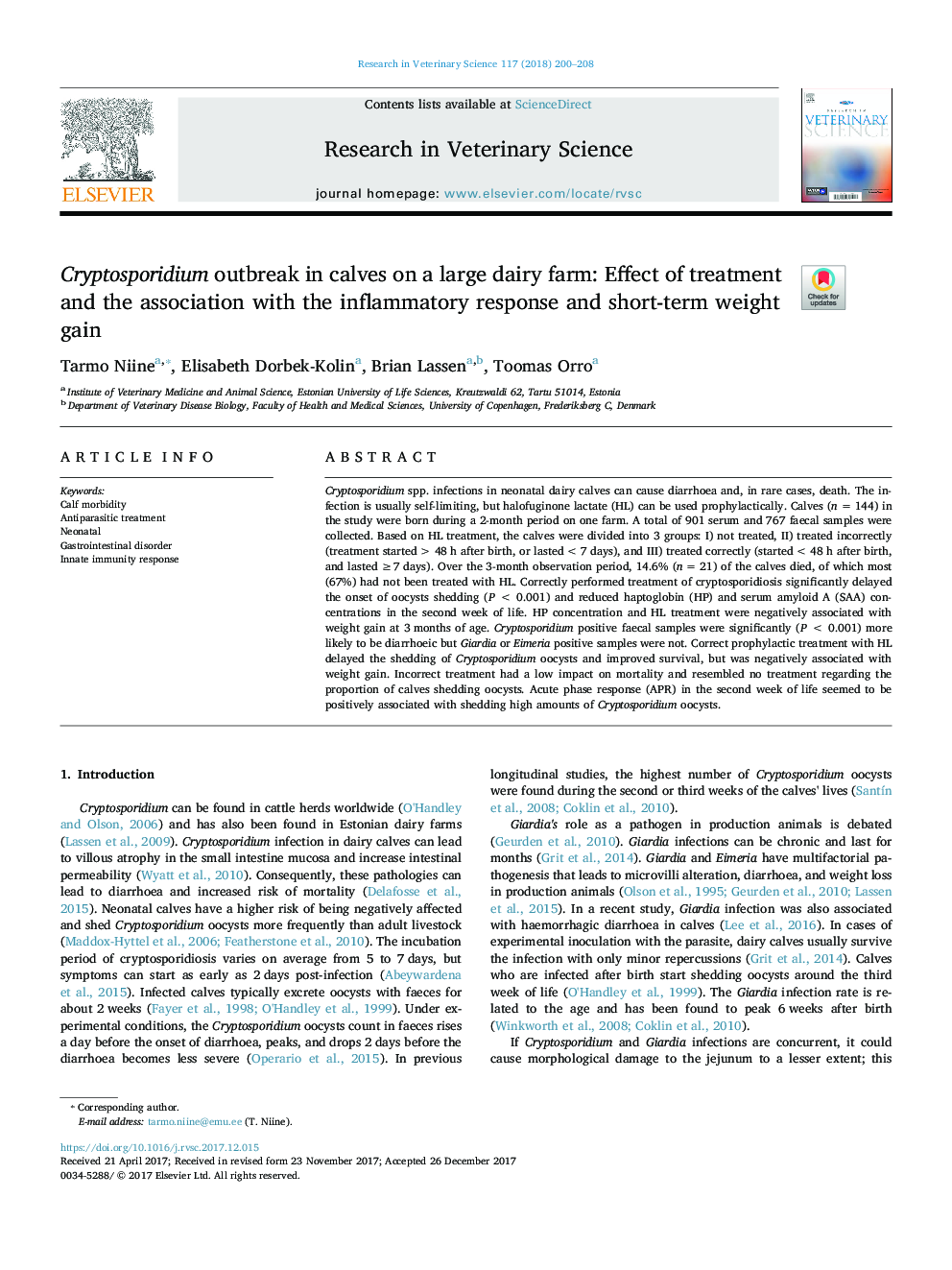| Article ID | Journal | Published Year | Pages | File Type |
|---|---|---|---|---|
| 8504021 | Research in Veterinary Science | 2018 | 9 Pages |
Abstract
Cryptosporidium spp. infections in neonatal dairy calves can cause diarrhoea and, in rare cases, death. The infection is usually self-limiting, but halofuginone lactate (HL) can be used prophylactically. Calves (n = 144) in the study were born during a 2-month period on one farm. A total of 901 serum and 767 faecal samples were collected. Based on HL treatment, the calves were divided into 3 groups: I) not treated, II) treated incorrectly (treatment started > 48 h after birth, or lasted < 7 days), and III) treated correctly (started < 48 h after birth, and lasted â¥Â 7 days). Over the 3-month observation period, 14.6% (n = 21) of the calves died, of which most (67%) had not been treated with HL. Correctly performed treatment of cryptosporidiosis significantly delayed the onset of oocysts shedding (P < 0.001) and reduced haptoglobin (HP) and serum amyloid A (SAA) concentrations in the second week of life. HP concentration and HL treatment were negatively associated with weight gain at 3 months of age. Cryptosporidium positive faecal samples were significantly (P < 0.001) more likely to be diarrhoeic but Giardia or Eimeria positive samples were not. Correct prophylactic treatment with HL delayed the shedding of Cryptosporidium oocysts and improved survival, but was negatively associated with weight gain. Incorrect treatment had a low impact on mortality and resembled no treatment regarding the proportion of calves shedding oocysts. Acute phase response (APR) in the second week of life seemed to be positively associated with shedding high amounts of Cryptosporidium oocysts.
Keywords
Related Topics
Life Sciences
Agricultural and Biological Sciences
Animal Science and Zoology
Authors
Tarmo Niine, Elisabeth Dorbek-Kolin, Brian Lassen, Toomas Orro,
